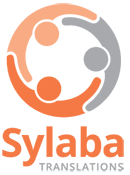This blog post explores the history and cultural importance of Swahili, a Bantu language spoken in East and Central Africa. It is the official language of Tanzania, Kenya, and Uganda, and has unique characteristics that make it important in the region. We discuss the challenges of English to Swahili translation, strategies for effective translation, and the role of translation in promoting multilingualism and preserving cultural identity.
History of Swahili
Swahili is believed to have originated in the coastal areas of East Africa, where it was heavily influenced by Arabic and other Bantu languages. The earliest known Swahili texts date back to the 18th century, although it was likely spoken for centuries before that. It was initially used as a lingua franca for trade along the East African coast, but gradually became a language of wider communication and is now spoken by millions of people across the region. One of the most important influences on Swahili was the Arab slave trade, which brought many Arabic-speaking traders to the East African coast, leading to the development of a distinctive Swahili-Arabic dialect. It was also heavily influenced by Portuguese during the colonial period, and later by English, which is now the dominant language of education and government in many Swahili-speaking countries.
Unique Characteristics of Swahili
Swahili is a unique language with several distinctive characteristics, such as its use of prefixes and suffixes to indicate tense, aspect, and mood. It also has a complex system of noun classes, with each noun belonging to a specific class and being assigned a prefix that indicates its class. Additionally, Swahili has a distinctive Swahili-Arabic dialect, which is still spoken in some parts of the region.
Challenges of English to Swahili Translation
Translating from English to Swahili can be a challenging task, due to several factors.
Differences in grammar and syntax between the two languages
Swahili has a very different sentence structure from English, with the verb usually coming at the beginning of the sentence and the subject and object following. This can make it difficult to translate English sentences into Swahili, and vice versa.
Variations in dialects within the Swahili-speaking region
Swahili is spoken by millions of people across East and Central Africa, and there are many different dialects and variations of the language. This can make it difficult to find a common language that is understood by all speakers of Swahili.
Idiomatic expressions and phrases
Swahili has many idiomatic expressions and phrases that do not have direct translations in English, and vice versa. This can make it difficult to convey the intended meaning of a text in translation and can lead to misunderstandings and confusion.
Strategies for Effective English to Swahili Translation
Despite the challenges of English to Swahili translation, there are several strategies that can be used to ensure effective and accurate translations.
Understand the context and audience of the text being translated
Swahili is spoken by millions of people across a wide range of cultural and linguistic backgrounds, and it is important to tailor translations to the specific needs and expectations of the target audience. This may involve using different dialects or registers of Swahili or adapting translations to local cultural norms and values.
Hire native Swahili speakers and professional translators
Professional translators can help ensure accurate translations and can provide valuable feedback on cultural nuances and idiomatic expressions.
Glossaries and terminology databases
These resources can help translators find the correct translation for specific words and phrases and can help ensure consistency and accuracy across multiple translations.
Collaborating with subject matter experts
These experts can provide valuable insights into local cultural practices and can help ensure that translations are culturally appropriate and sensitive to local customs and traditions.
Examples of English to Swahili Translation Projects
English to Swahili translation is used in a wide range of contexts, from literature and creative writing to technical and scientific documents, legal and business contracts, and marketing and advertising materials.
Bible into Swahili
This project began in the late 19th century and had since become one of the most important translations of the Bible in Africa. The Swahili Bible is now widely used in churches and schools throughout East and Central Africa and has played an important role in the spread of Christianity in the region.
Legal and business documents
Swahili is the official language of Tanzania and Kenya and is widely used in other countries in the region. Translating legal and business documents into Swahili is essential for companies and organizations operating in East and Central Africa and is critical for ensuring that contracts and agreements are understood by all parties involved.
The Role of English to Swahili Translation in Preserving Cultural Identity
English to Swahili translation plays an important role in preserving cultural identity in East and Central Africa. Swahili is a language of great cultural importance and is closely linked to the history and traditions of the region. By preserving the Swahili language and translating important cultural texts into Swahili, we can help ensure that these traditions and values are passed down to future generations.
Promoting multilingualism and diversity
Swahili is just one of the many languages spoken in East and Central Africa, and promoting multilingualism is critical for preserving cultural diversity and promoting cross-cultural understanding.
Supporting education and development
By providing access to high-quality educational materials in Swahili, we can help ensure that children in the region can learn and grow and can contribute to the development and prosperity of their communities.
Conclusion
English to Swahili translation is a challenging but important task that plays a crucial role in preserving cultural identity, promoting diversity, and supporting education and development in East and Central Africa. By valuing and respecting local languages and cultures, we can promote understanding and empathy between different peoples and communities. The key strategy to achieve this goal is English to Swahili translation.
Related Posts

Get a quote today
"*" indicates required fields
Subscribe today to receive the latest insights and updates from Sylaba Translations










